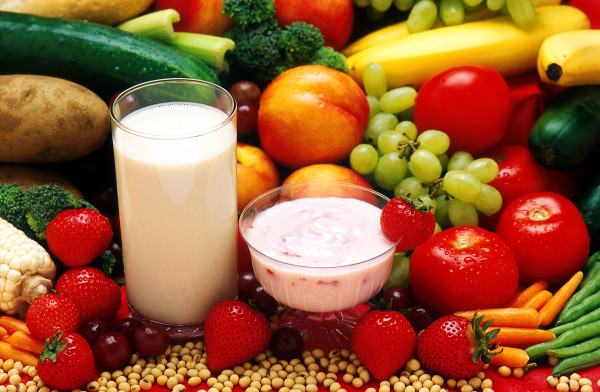In the name of money, large corporations commonly raise pigs, cows, and chickens in compact spaces where they are unable to move, frequently mutilated, and pumped up with hormones. As a result, many people are fighting against the mistreatment of animals by going vegetarian, abstaining from eating meat on Mondays with the widely-used hashtag #meatlessmondays, or simply buying free range meat.
Vegetarianism is one of the biggest movements to have erupted in our century. A vegetarian lifestyle is not always an easy choice for people concerned with animal abuse, due to the price and availability of vegetarian-friendly options in the supermarket. However, there are a plethora of personal benefits associated with just eating LESS meat.
Image Source: GMVozd
Will abstaining from meat negatively affect my protein intake?
Most adults only need 50 to 175 grams of protein a day (based on a 2,000 calorie per day diet), so getting protein from other, non-meat sources can still fulfill your daily protein needs. Some good sources of protein are eggs, milk, and tofu. An egg has 6 grams of protein and a glass of milk has 8 grams! Vegetables with high sources of protein include peas, spinach, broccoli, and Brussels sprouts. Other foods like nuts and grains are packed with protein as well.
Can eating vegetables be better for oral health?
Vitamin C, which is plentiful in most fruits and vegetables, is vital for building collagen. Collagen is commonly touted as an important anti-aging protein, but it is also important for strong gums. Vitamin A, found in leafy greens, as well as carrots and potatoes, is essential for maintaining the enamel that protects teeth. Dairy products also contain vitamin D, calcium and phosphorus for building a strong, healthy set of pearly whites.
Can eating too much meat lead to disease?
A 10-year-long National Cancer Institute study of 500,000 people revealed that those who consumed at least four ounces of red meat daily had a 30% increase in mortality due to heart disease, diabetes and stroke. This was especially more pertinent for those who consumed processed meats. This is primarily because eating plant-based meals typically means consuming foods that have fewer calories, less fat, and lower levels of cholesterol.
Does eating meat impact the environment?
The production and consumption of meat makes up 14-51% of greenhouse gas emissions around the world. Additionally, one 1/3-pound burger requires 660 gallons of water to produce and one pound of beef requires a whopping 1,799 gallons of water. Most protein-containing vegetables require much less. A pound of soybeans uses 206 gallons of water while a pound of wheat uses 138 gallons of water. This matters because water shortage is a serious problem for many states like California, Texas and Nevada. In a decade, this will be a problem for the whole country because 80% of the country is already excessively dry.
America is not only one of the most unhealthy developed countries in the world, but our habits of consumption are also unsustainable. Taking baby steps towards eating less meat, thus, will not only make you healthier but the environment as well.
Feature Image Source: Vegetarianism by Peggy Greb










